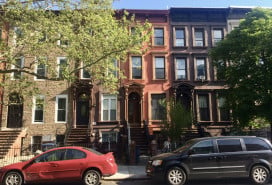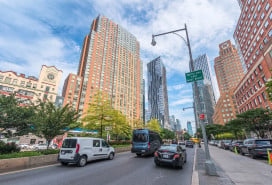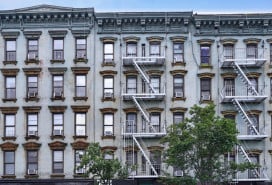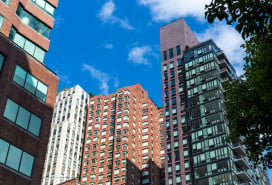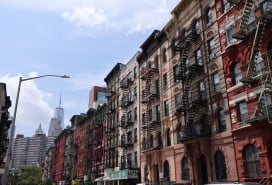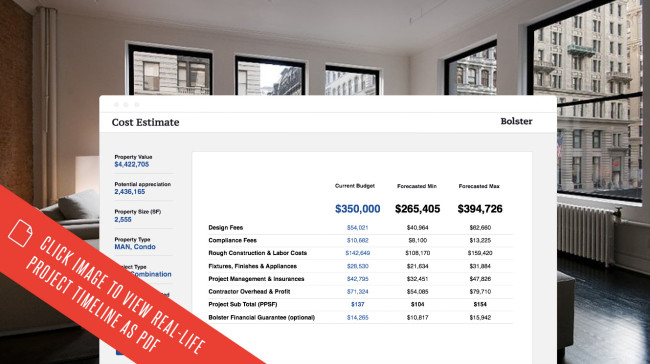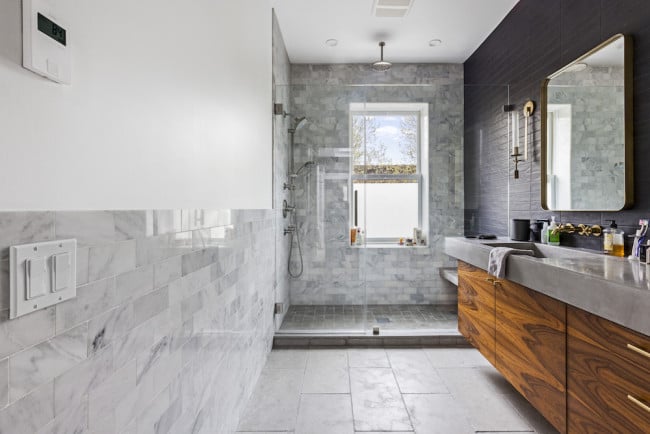Why does it cost so much to renovate in NYC?
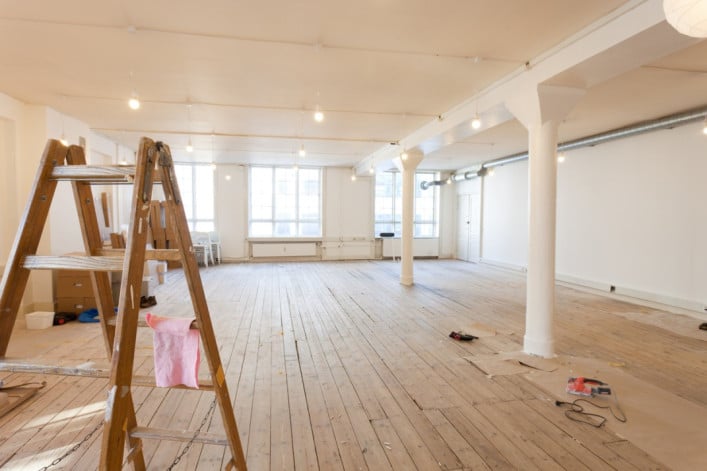
If you’ve begun researching the cost of doing a big home renovation in New York City, you’re probably suffering from sticker shock at this very moment. Yes, you already knew that everything from dinner to transit costs more in one of the greatest and priciest cities on earth…but this much more?
You’re not alone.
“Some homeowners can be surprised by the initial estimates. Together, we’ll go through the budget line item by line item to contextualize why it’s so expensive,” says Aaron Borenstein, a contractor with Bolster, a New York City company that empowers homeowners to control their major renovation by delivering industry-leading expertise and a radically transparent online platform. “But once we help homeowners understand exactly where their money is going and why, they can make informed decisions on where to invest and where to save.”
It goes without saying that New York City home renovation prices will be proportional to the area’s notoriously high cost of living, but that’s only one part of the story, says Aaron.
1. Logistics
Material shipment costs are higher here, in large part because it’s difficult to coordinate smaller supplier shipments on a day-to-day basis. There is limited time in which builders can be on site, so as shipment windows decrease, the price to deliver within that business day increases. Complicating things further, many out of state shipments won’t be delivered unless the driver has a full truck.
Then there’s the journey from the curb to your home. In the suburbs, materials can be left in a driveway; in New York, they often need to be dealt with immediately, which adds a further expense.
Since suppliers only deliver curbside, “there are additional labor costs to get materials from the curb to your apartment and ensure they’re properly protected along the way,” says Aaron. These costs include blocking off a sidewalk to carry materials downstairs to a freight elevator, or even ferrying supplies up flights of stairs in the case of a walk-up. Some buildings even charge for extra elevator use. In certain extreme cases, materials must be lifted by crane to top floor walk ups.
If you’re not the only one renovating in your building, your contractor will have to share elevators or stairways, slowing things down and adding time and cost to the project.
Another cost that apartment dwellers must bear: If you’re renovating a co-op or condo, your alteration agreement will require you to pay for the protection of elevators, walkways, etc. You’re then paying the wages of the people who will take charge of that — including cleaning fees, management, and so on.
2. Materials
Physical building materials in NYC tend to be more expensive. If homeowners want to be adventurous, they can go out-of-state to shop for materials at a lower price point, but many people want to stay close to home.
“When you shop at a showroom in the city, the city-rate rent of that showroom is incorporated into the price of your materials,” says Aaron. “In other words, you’re not just paying for that tile–you’re paying for the tile and a fraction of the cost to keep the showroom lights on.”
This impacts both the cost of rough construction materials such as wire and plywood as well as the prices for finishes like tiles and kitchen cabinets, the latter of which tend to have even steeper markups.
3. Labor
Wages are higher in New York, so the people working on your project will be paid a premium that reflects that. Also increasing wages is the shortage of experienced labor in NYC. Hourly wages for construction workers are second only to Zurich, where the rate is just below $100/hour.
Other professionals enlisted in a New York City construction process include expediters, who do the essential work of literally standing on line at the New York City Department of Buildings to correctly file documents and obtain permits for work. Expediters must be highly skilled in order to overcome the city’s onerous red tape, so you’ll be paying a premium for their services.
“Expediters are not inexpensive, but they’re needed to push things through in a compliant manner,” says Aaron.
Additional, significant costs are incurred by fees from third-party inspectors: engineers who certify construction and safety specs.
Lastly, high-end materials often demand professionals with the skills to install them.
“There’s a big difference between a $200 a day carpenter and a $400 a day carpenter,” says Aaron, naming custom millwork, framing work, and custom cabinetry as some of the advanced skills that require well-paid talent to properly manage. “When you live in a city that demands the best of the best, that usually comes with a price tag.”
4. Insurance requirements
Insurance requirements like general liability and workers compensation add significant extra costs in New York. Nationwide, workers comp is 3% of the gross price of labor. In New York City, it’s 17% – more than 5 times that national rate. For the correct policies, general liability is roughly 3% of the gross project cost.
As insurance costs are proportional to the cost of materials and labor, paying for these required financial safety nets skyrocket in NYC.
(Word to the wise: Doing work without workers compensation is not just illegal, it’s foolish: should something happen on-site and a contractor is not insured, you may be personally responsible for the potentially astronomical cost.)
You Might Also Like
5. Building and city nuances
Some NYC buildings simply have stricter in-house requirements in order to remain compliant. In all co-op and condo buildings, for example, waterproofing must be applied to bathrooms to guard against any potential leaks–into your own space, or into your neighbor’s property. And if you put down wood floors, you must also install sound deadening material.
“You don’t ever have to do that outside the city,” says Aaron. “It’s a luxury, an upgrade. But if you’re living in a co-op or condo in the city, they don’t care what your budget is. You have to do it.”
Restricted work hours are another cost driver.
“In a suburban house, work can take place 12 hours a day, and depending on the town ordinances, sometimes even on weekends. In a NYC co-op or condo, it’s typically 8 hours, no weekends or holidays,” says Aaron. Shorter days typically mean longer timelines in order to get the job done in a correct and compliant manner. And as they say, time is money.
Finally, the city’s outsized stock of older housing yields costly and time-consuming problems like rotted structural beams, lead paint, and asbestos. Properly identifying and correcting these obstacles from the very beginning is a crucial expense in any successful renovation.
6. Miscellaneous expenses
“On top of all the major expenses like materials, labor, transport, and insurance, there are many little things people don’t often think about,” says Aaron. “Things like the inability to find smaller materials ‘around the corner’ in a pinch, the time it takes to find parking, the high cost once you do. Sometimes you even have to tip supers.”
How to save money and renovate on-budget
“While the costs of renovating in New York City can seem intimidating, we work diligently to show you how to make more informed spending decisions and give you the tools you need for a successful on-budget renovation,” says Anna Karp, Bolster’s co-founder. ”Unlike traditional renovations where design costs can skyrocket, we do the due diligence up front, ensuring designs are on-budget and minimizing the risk of costly build delays down the road. We understand the need for accountability and radical transparency.”
Once your budget and project plan are agreed upon, you can access your renovation in real-time using Bolster’s proprietary online platform.
“Our technology is a game changer,” says Anna. “It enables you to see expenses down to the cent, make adjustments if needed, and view project milestones. We’ve found that when homeowners get into the weeds and really understand their costs, the price tags start to feel less frightening and more contextualized.”
Every year, New Yorkers waste over $700M following the usual renovation process.
Bolster has uncovered the drivers behind these inefficiencies and has developed a proprietary solution that applies to every home renovation project. Bolster is the first company to bring radical transparency, analytics, and accountability to the entire process. They promise that every project is thoughtfully designed and beautifully delivered for a fair price, on time, and on budget. To start your major home renovation project, visit bolster.us
More from Bolster:
How to find a great contractor in NYC
Should you hire an architect or contractor first? Or both at the same time?
The smart way to combine apartments in New York City

